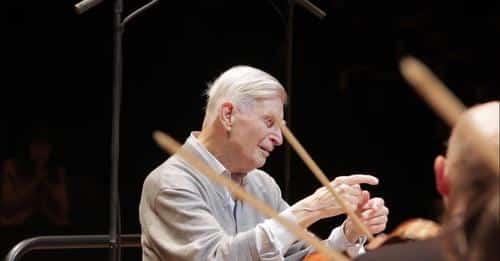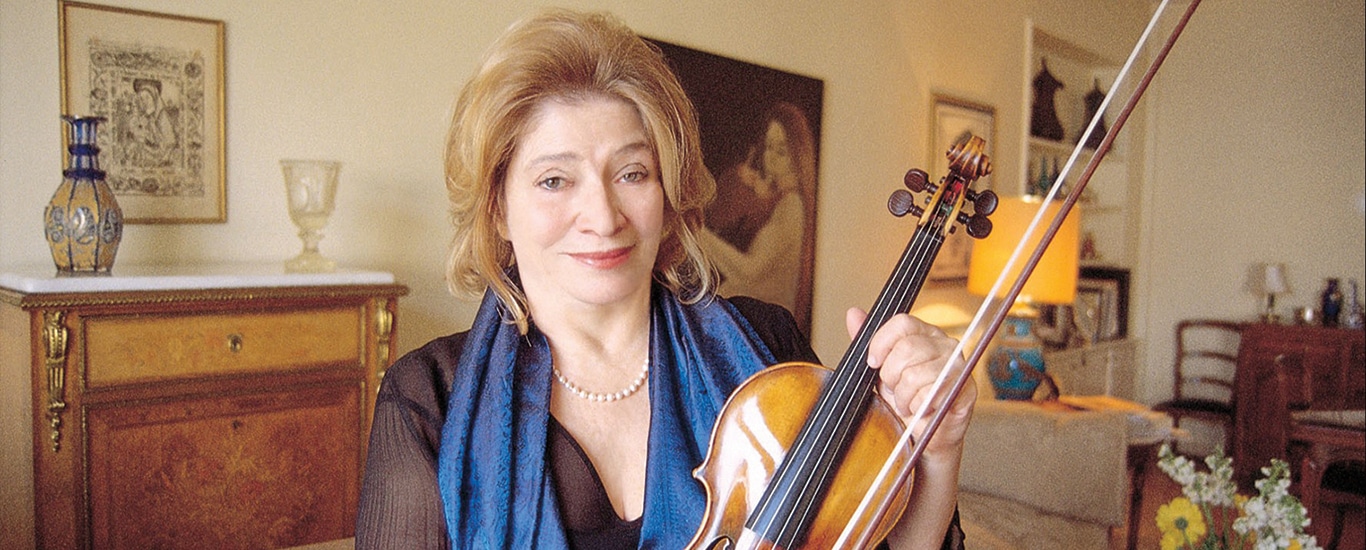New research: They listen more intently when you improvise
mainNew research claims to show that audiences are more attentive to musical improvisation than to scripted performance. Really? We’ll ask the leading improviser (pictured).
Here’s the summary. And here’s some video.






I think back to your recent posts about cases in which the orchestra surprises the soloist with an unexpected concerto introduction. Could you sell tickets to see this?
I see…, we should simply change works with improvising, written from Bach to Bartok, to awake the “audience engagement” in a performance.
Please, do improvise; but I wouldn’t mess with music of great composers! (asides that not every good musician is a good improviser)
This is a great question. What is sure is that improvisation is very exciting for an audience, as well as for the artist. Sometimes I can leave every last drop of artistry and effort on stage after a piano concerto, only to have an improvised encore greeted with the kind of roar normally associated with a pop concert. This is not a measure of how comparatively well I played the concerto, but a gut reaction to the fact that something about making it up in the moment is mysterious and exciting! I would never improvise within a written work, except in the case of a cadenza, because I respect totally the composer’s wishes. What I like to do is create whole new works spontaneously, without a plan, without any framework or preconceptions. It feels that audiences are asking themselves “where will she go next?” Often, their focused attention is signaled by a group murmur, or even empathetic laughter as a deeply serious melody becomes lightened by a sudden and unexpected rhythmical or harmonic shift. Defeating expectations is what creates the attention and causes the excitement. What is equally interesting is how I feel in myself on stage when I create spontaneous compositions, as opposed to playing the works of others. I feel as though all constraints are set aside, that the music-making becomes as free and sincere for me as it ever can be, and perhaps that is also what draws the audience’s attention, even if subconsciously. Wherever the answer lies in a neurological sense, I recommend all artists try it, even if only at home or in the practice room. It can only benefit your relationship with your instrument, and who knows what you might discover about yourself!
This “study” is putting the cart before the horse.
The audience doesn’t “engage” more when there is improvisation. They engage more when they are treated to something new.
How about giving audiences new music on a more regular basis, instead of regurgitating the same old same old at every concert?
Well-written neo-tonal new music is just as engaging, just as interesting to the audience, as the repertoire standards. When new music is built on a solid foundation of enough recognizable linguistic commonality (ie: a musical language that is not SO foreign to the audience that there is no common ground for SOME understanding), then the simple act of being “new” music which the audience hasn’t heard before, should be enough to “engage” them.
It’s about time. Improvisation was the life-blood of music before it was gradually expunged from the serious artistic curriculum. For decades, “classical” musicians have been content to dismiss improvisation as “something jazz musicians do…” In earlier centuries, prior to at least the mid-nineteenth, the pianist who could not improvise an evening’s worth of interesting music had no real chance at a serious career. The final death knell to improvisation came with the university modernists. How could you fill seats in composition and performance classes if the candidates are required to improvise? Easy solution: establish the row as the new building block of music and… problem solved! Improvisation could then be eliminated and and suddenly, there were more composers than we knew what to do with. Funny how easy it was to be a composer if you didn’t have to improvise. Then, all you had to do was pony up the funds for your credentials, study, pass your tests, get decent grades, and bingo!…instant composers!
It’s important to remember that academic degrees have been de rigueur for composers and classical performers for only about the past one hundred years. Charles Ives couldn’t get a “professional” music degree at Yale in 1898, even though he studied with Parker. Yes, I’m equating the demise of improvisation with the assumption of classical music custodianship by the academic industry. There will be no real vitality in this art form until that custodianship is shaken off. The return of improvisation is an excellent first step.
Of course audiences like improvisation. And audiences like music that speaks to them, even if it pushes their boundaries a little. They also like hearing something done that they know very few people can do. And these days, a lot more people can play (or even compose!) a sonata or concerto than can improvise an engaging two hour concert.